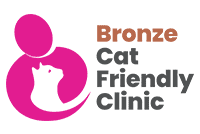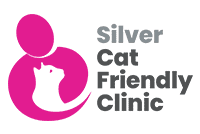Kingshay estimates that each case of pneumonia costs £43 per calf plus £29 for each calf in the rest of the group. Vet medicines are only a small part of the cost (honestly) whereas reduced growth rates/failure to thrive make up the rest. Replacement heifers that have been affected are shown to produce 350kg less milk in their first lactation.
The key is to have sufficient air speed to get rid of any moisture and bring in fresh air. Most respiratory viruses survive for about 5-10 minutes in fresh air but if only 50% of the air is fresh (in a shed not adequately ventilated) then the viruses can survive for an hour or even longer – so obviously increasing the risk of infection. Fresh air also removes noxious chemicals such as ammonia which can damage the lung lining.
Management needs to be aimed at:
- Colostrum - blood testing calves 24-48 hours old will show what levels of antibodies they have received
- Ventilation
- Moisture control
- Grouping animal of similar age
- Vaccination where known high levels of challenge, especially if buying calves in.
Respiratory disease is complex but often starts off as a viral infection - commonly Respiratory Syncytial Virus (the one that kills young calves very quickly) and Parainfluenza 3. We tend to see IBR in slightly older calves. Bacteria are usually “secondary invaders” with the exception of Pasteurella (causing “Shipping Fever”).
Vaccination
Vaccination is a useful tool against calf pneumonia, however it is not a silver bullet and cannot make up for poor colostrum or inadequate calf housing. Intransal vaccines given to baby calves provide a rapid onset of immunity to the main pneumonia causing viruses found on farms, however other causes of pneumonia, such as mycoplasma, require a different approach. It is therefore important to know which viruses or bacteria we are dealing with to ensure we choose the correct type of vaccination. Taking blood samples and nasal swabs or doing post mortem testing on calves can help us with identification
Rispoval Intranasal can be used very early on and has a more rapid onset of immunity – 5 days for the RSV component and 10d for the PI3. As there is virtually no interference from maternal antibodies in colostrum to the vaccine you can use this down to very young calves (though licensed from 9 days) and immunity lasts for 12 weeks.
Rispoval 4 provides longer lasting protection (about 6 months compared to 12 weeks) and covers IBR as well. Ideally it should be given at least 2 weeks before an expected stressor eg transport, housing, mixing (!). You do need 2 doses and if calves are vaccinated twice below 12 weeks then they should receive an extra third dose.
| RSV | PI3 | IBR | BVD | Use from | |
| Rispoval intranasal | + | + | 1 week old, single dose intranasally | ||
| Rispoval 4 | + | + | + | + | 8 weeks old, 2 doses 4 week apart i/m or 3 weeks old, 3 doses 3-4 weeks apart |
| Bovilis Intranasal | + | + | Can be used from day of birth, single dose intranasal |
There is also a Rispoval Pasteurella vaccine which can be used from 12 weeks old. This is a single dose and should be used at least 7 days prior to an expected stress eg. transport.
Treatment
- Do hit hard first time – use anti-inflammatory injections plus an antibiotic. Remember the anti-inflammatory is likely to be doing most of the work especially if you catch the disease early. Some antibiotic preparations come with an anti-inflammatory part in them so you only need to do one injection at one go although it may need repeating in 2-4 days.
- Monitor other calves in the group closely - calves with early pneumonia will have a high temperature but may not show any other signs until they stop drinking. Take the temperature of the whole group and treat those with temperatures above 39 degrees. Your vet will produce a pneumonia treatment protocol specific for your farm.






